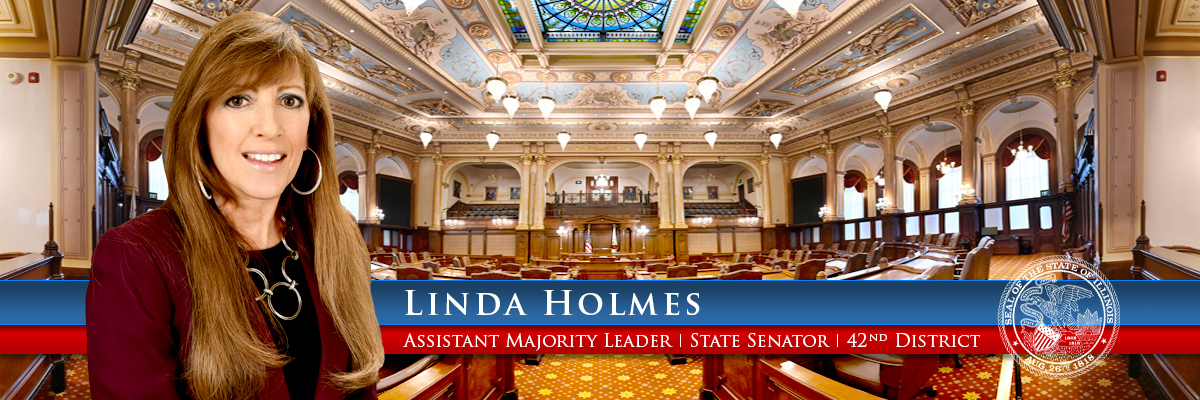 SPRINGFIELD — The governor signed legislation by State Sen. Linda Holmes and Attorney General Lisa Madigan to streamline some state laws to improve accessibility for people with disabilities in Illinois.
SPRINGFIELD — The governor signed legislation by State Sen. Linda Holmes and Attorney General Lisa Madigan to streamline some state laws to improve accessibility for people with disabilities in Illinois.
“Simplifying and streamlining codes makes it easier to comply with laws, and making accessibility laws easier to follow will help ensure equal access for people with disabilities who live in and visit our state,” said Holmes. “I applaud Attorney General Madigan’s leadership on this issue and thank the governor for signing it into law.”
Attorney General Lisa Madigan called for the legislation, sponsored by Holmes, to update the Illinois Environmental Barriers Act (EBA). First enacted in 1985, that statute authorizes the Attorney General’s Office to enforce accessibility laws mandating that public buildings and multi-story housing units in Illinois be fully accessible to individuals with disabilities.
“Our commitment to equality for all must extend to making sure people who have disabilities have equal access to facilities within their communities,” Madigan said. “People who have disabilities lead active lives, and our laws should enhance their ability to do so.”
The legislation that passed today amends the EBA to update state law with the federal Americans with Disabilities Act’s (ADA) Standards for Accessible Design and streamlines the existing state statute so architects have an easier time referencing the law.
Changes to the Environmental Barriers Act under this update include:
- Updating definitions to conform with the 2010 ADA Standards for Accessible Design and corresponding updates to the Illinois Accessibility Code;
- Replacing an outdated state standard for accessibility with an easier-to-use standard that mirrors the ADA;
- Clarifying which version of the EBA and the Illinois Accessibility Code applies to new construction and alterations; and
- Updating the enforcement provisions to reflect the current emphasis on working with businesses to resolve issues and alleviate future barriers for individuals with disabilities.
The legislation was Senate Bill 2956. It becomes effective Jan. 1, 2017.




